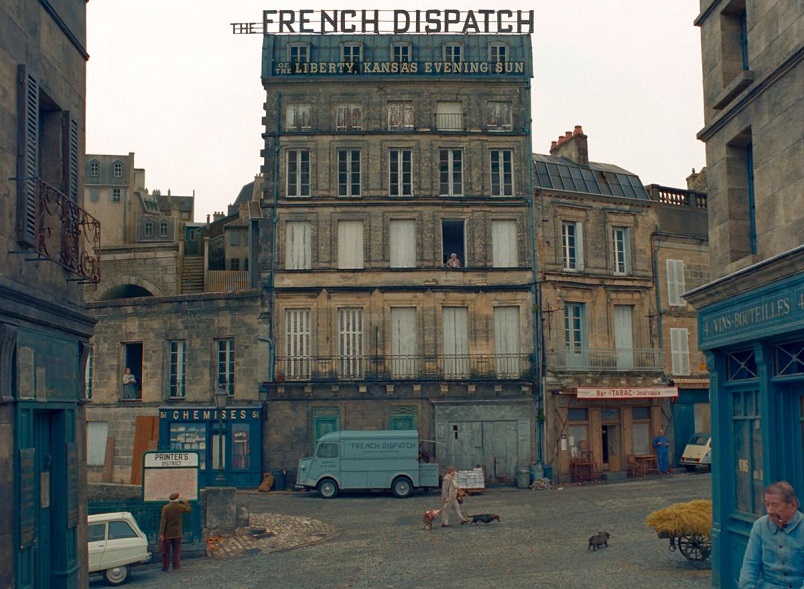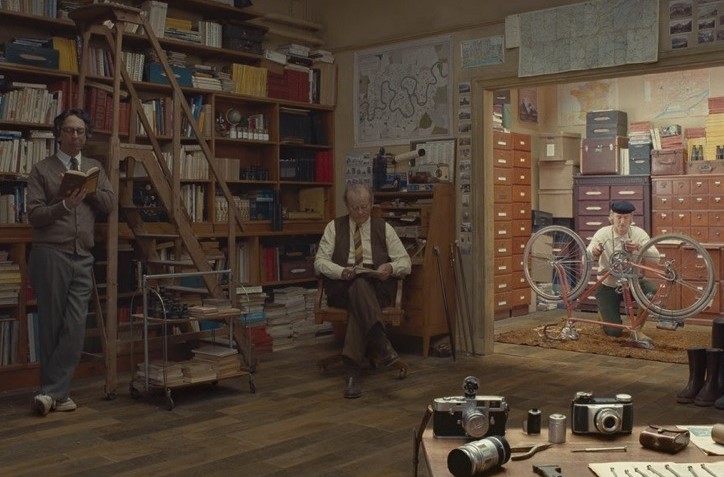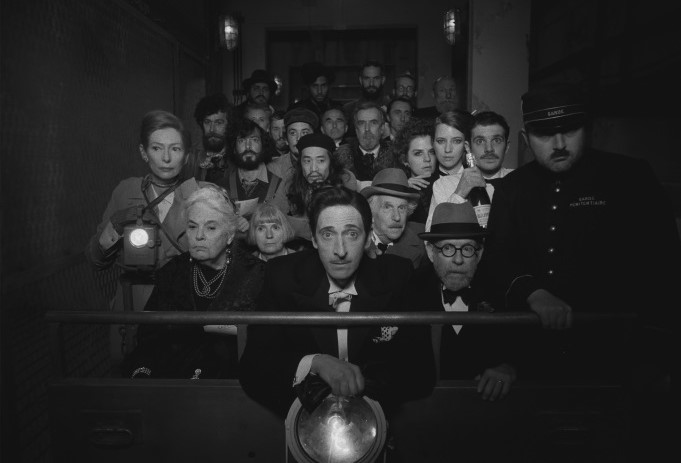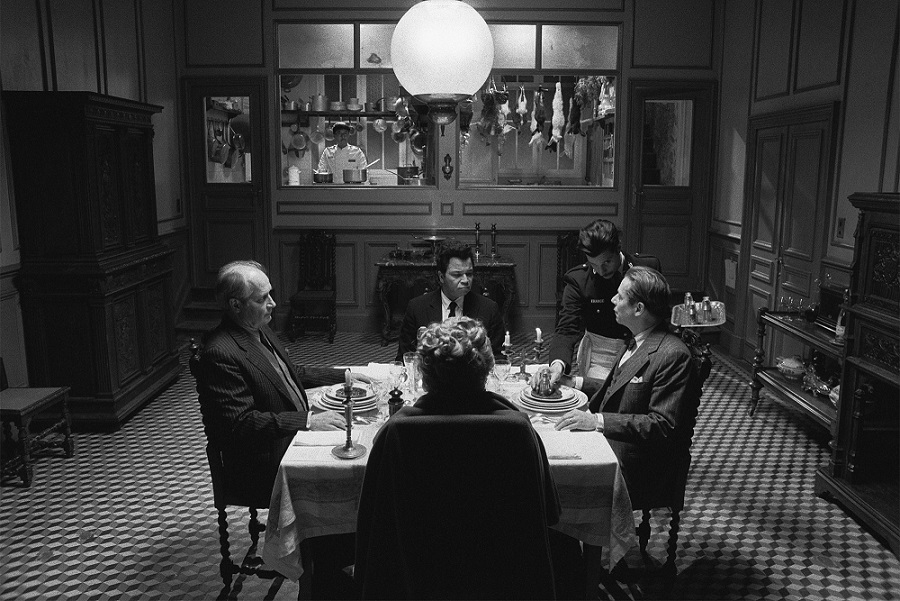
This feature from Searchlight Pictures opens exclusively in theaters on October 29th.
Wes Anderson is famous for making visually stunning and quirky films that can either charm or annoy viewers. His live action features include Rushmore, The Royal Tenenbaums, Moonrise Kingdom, and this reviewer’s personal favorite, The Grand Budapest Hotel. The French Dispatch is his latest effort and it possesses Anderson’s unique and eccentric mannerisms in spades. It’s also the closest this filmmaker has ever come to making an anthology. The brief, episodic nature of the material struggles to deliver a big emotional imprint on the viewer. However, there are some fun moments and the movie is a treat for the eyes.

Serving as a tribute to the dying art of journalism, the story introduces viewers to a newspaper office in Ennui, France. The employees write a little-read travel insert that appears each Sunday in a Liberty, Kansas newspaper. After the magazine editor (Bill Murray) passes away, the staff prepare the final edition of the publication. It includes a brief but amusing column by Herbsaint Sazerac (Owen Wilson) on getting around town, as well as reprints of three memorable articles about the city’s residents. One involves a journalist (Tilda Swinton) analyzing a romance between an insane artist (Benicio del Toro) and a prison guard (Léa Seydoux), while another follows a student revolutionary (Timothée Chalamet) and his interactions with a reporter (Francis McDormand). The third details a writer (Jeffrey Wright) covering a famous chef (Stephen Park) who cooks for the local police Commissaire (Mathieu Amalric).

There are plenty of bit parts and cameos played by famous faces, who are squeezed into the proceedings and then vanish after only seconds of screen time. In fact, one initially wonders why so much attention is paid to introducing the numerous staff members when the screenplay only deals with a select few of them in detail. The story begins with the paper about to cease its operations, leaving little drama or tension as to the fates of the soon-to-be-out-of-work writers and staff. Rather than focus on their plight, they simply serve as an elaborate framing device for the stories that follow.

This unusual tactic is a bit of a missed opportunity, even if the editor explains early on that he hates crying or sentimentality. But the stories themselves are intriguing and provide plenty of chuckles. When a shady art dealer (Adrien Brody) representing his institutionalized artist’s unseen masterpiece finally sees the work in public, the angry fracas that follows is entertaining. There’s also fun bickering and testiness between student revolutionaries as their personal lives become intertwined with their manifesto. But the film’s highlight is its final tale. This story possesses a bigger emotional payoff than the film’s other segments as two of its characters briefly comment on the trials of being an outsider.

The movie is also a technical marvel. The cinematography and production design are as good as you’re likely to see at the movies this year and seem destined for Academy Award nominations. Much of the film is shot in black and white and the cobbled French streets and aged buildings look gorgeous, especially with snow glistening off background light. There are sudden and bold flashes of color throughout the feature when elements like a piece of art or a plate of food is displayed. Additionally, the movie contains are wonderful extended shots in which the camera follows characters past walls into numerous rooms, as well as dynamic images of the lens speeding with traffic through the village streets.
This is a gorgeous movie with a great cast and some enjoyable moments. Admittedly, if you don’t care for Wes Anderson’s works, this film will not convert or enrapture you. In fact, it’s even more esoteric than his usual fare. However, those who do appreciate his unique view of the world will certainly sampling the various vignettes on display. The only unfortunate missing element here is heart. It may have more to do with the fact that the movie is a series of shorts, but this viewer didn’t have the same feelings of empathy for these characters as for those in the filmmaker’s best titles. In the end, The French Dispatch is an enjoyable read, but one that could have resonated deeper with a rewrite and more time spent with fewer leads.


